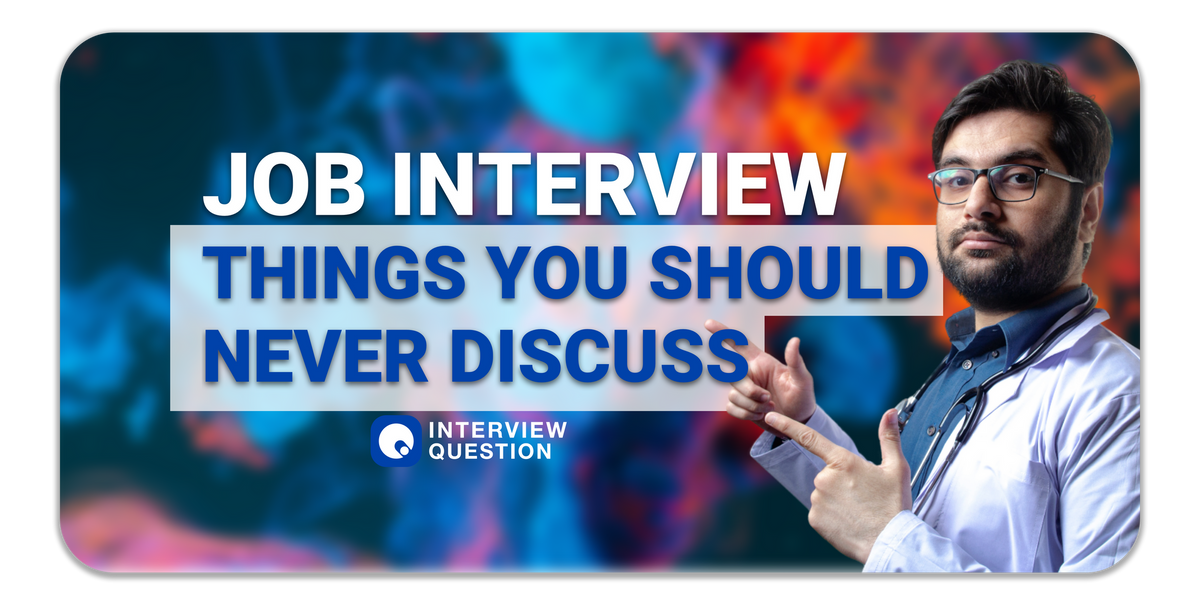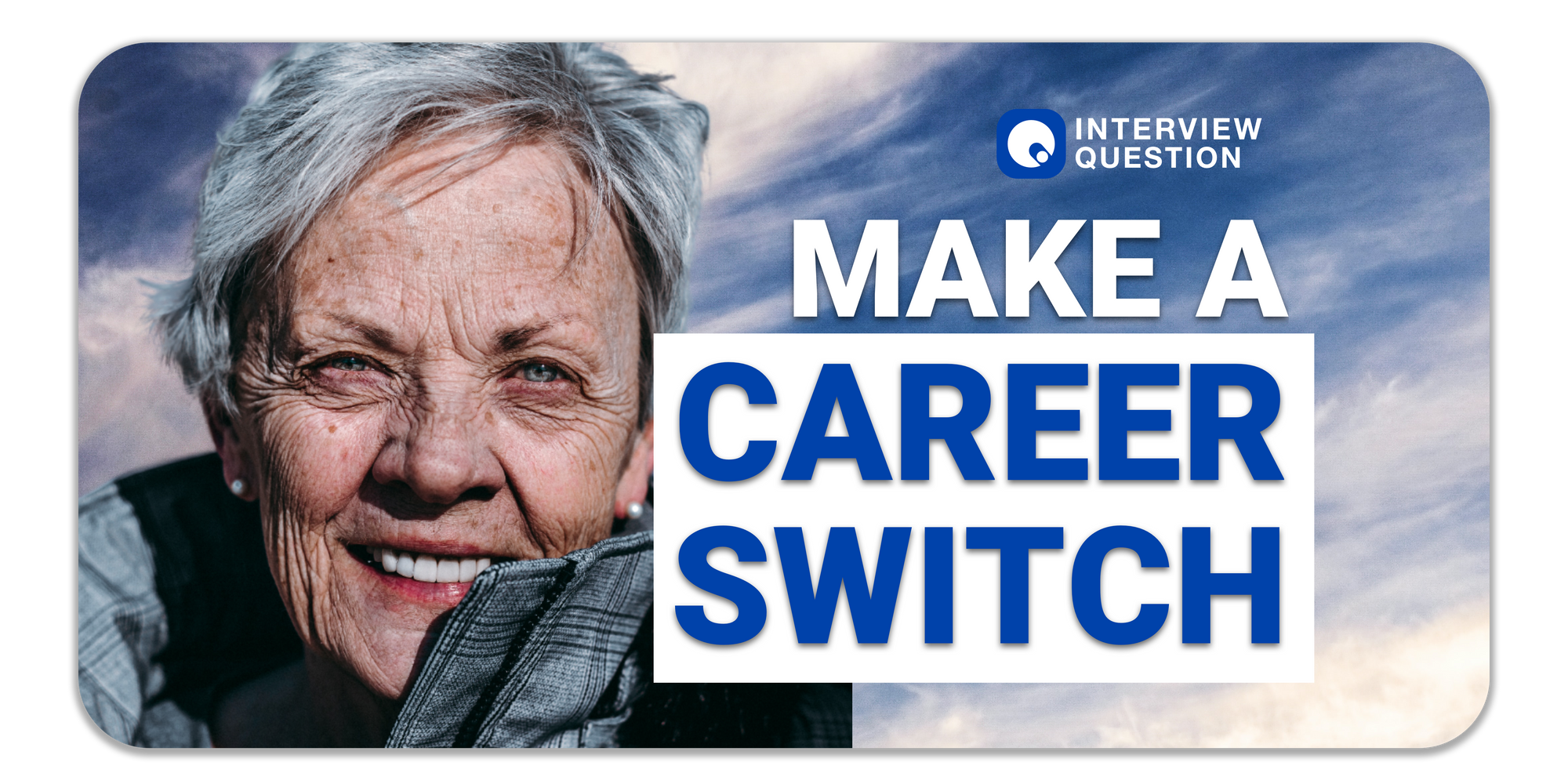20 Things You Should Never Discuss in an Interview
• “I have a family to support” • “I don't feel I can commit to anything right now.” • “I have another job offer” • “My boss is a jerk” • “I'm graduating, so I can pretty much take a year off” • “Yes, I'm planning on moving away next year...”

What should you never say in an interview? We've compiled a list of 20 things that you should either avoid or be prepared for the consequences that might come from saying them.
“I have a family to support”
It sounds like you are trying to make yourself a victim in the situation (which won't put you in a good light), or that your family is way more important than your job. It's not true that every job needs to support your family; there are plenty of jobs out there for people who are single, or who choose not to have children (or whose children are grown and out of the house). Unlikely will they ever want to hear about your problems outside work or personal issues that lead up to it.
If you really need to skip an interview, find reasonable excuses to give the appointment a miss.

“I don't feel I can commit to anything right now.”
“I'm extremely interested in this position but I don't feel as though I can commit to anything right now.” This is the full sentence that's often heard.
That's a complete waste of time for both parties involved! While the interviewer may be quiet, they will be writing it down in your reference file. By saying – I am interested – you are opening up the prospect of "maybe" working for this company. Then when you say "don't feel as though I can commit to anything right now", the hiring manager could interpret that as you are not serious enough about their company or as committed as you should be about your career.
“I have another job offer”
This makes you look unprofessional if you do not intend on taking the second job just in case this one doesn't work out. No one wants to be a backup plan. You might be able to get something better elsewhere, and the employer may well drop your benefits package due to budget cuts in the future.
“My boss is a jerk”
Even if this is so, never say it to an interviewer! Your perspective is subjective. Maybe your boss is a jerk but they're actually a good leader. Even if you've had personal experiences that make your boss seem like a terrible person, you should NEVER tell anyone else unless the interviewer asks how you feel about them. It's easy to come across as disgruntled and unappreciative of the job in question when you discuss your past workplace, no matter how much it may be true.
I would say that it is better to direct the conversation to positive job experiences instead.

“I'm graduating, so I can pretty much take a year off”
This is not a good thing to say when it comes to your goals and career path. While most recruiters will understand that graduating students are on their way out of college, they might think of this as you not have thought about your future ahead. They might think that you are unsure and lack ambition.

“Yes, I'm planning on moving away next year...”
Asking about relocation is one thing, but when you make an announcement like this the interviewer might take it as though you are intending to leave after signing a contract. It can also signal that you treat their job as temporary and hence unimportant.
“I'm not really interested in this job”
If you want a job then it's safe to say that it's a good idea to show that you are interested in the company's activities. Else, it will look like you plan on quitting within the first week of starting the job if the job is not to your liking - then the interviewer won't even bother going through the red tape of hiring and firing. It is administratively tiring.
Here are safer questions you can ask:

“I'll only take this job if there are specific benefits”
Going forward with your dealbreaker like that will seem to be a threat to the interviewer. The fact is that there are enough viable candidates out there for the company to be able to get someone to take the job, and for less.
“I don't want this job because there are too many overqualified candidates for the position”
This is a statement that will make you seem insecure and basically saying that you're not good enough for it. It's safe to say that this makes you seem like a bad candidate and an interview should go well, right? If it doesn't, then maybe it's your fault.
“I just saw your ad and am interested in the position...”
Without research, you are approaching your future employer with nothing more than hope. That's not a way to get the job, and though they'll probably interview you with everyone else, your chances at securing a job is merely average. Research the company and speak about what you've learned (i.e., “I saw your ad and thought XYZ was interesting”). Minimally Google the company – they probably already know that a lot about them is out there on the net.
“I've been waiting a long time to get my hands on this job...”
This sounds like a complaint, not a statement of interest. Just because you have been waiting for the job doesn't mean you are certainly going to be willing to take it if is offered.
Anything you would not put in words in your resume should not be said during an interview.

“I'll be happy with anything”
If this is the case, then your skills are valued at a low level and it's unlikely that you'll have much success getting promoted or getting a pay raise. No one wants to hire someone who isn't properly motivated and is willing to work for less than they are worth. Or if the company is business-minded, then they might see you as a cheap deal .
“I'm willing to work for less than you're offering”
This is another statement that will make you sound unappreciative and it's just not true. You may have a lower salary offer, but you still have to figure out how much you'll be making over the course of a normal year if you want the job. You should be happy with whatever's offered, and if they increase the offer, at least it means that your skills are valued at some level.
“I don't have any experience”
Experience is gained. It's not given. Given that you will have to learn and adapt to the company, use what skills you have to make yourself an asset in the short term. If you are a great employee who can learn quickly, they're still going to want you on their team.
With age, comes experience.
If you are not old (enough 😆), then use your youth to learn, make mistakes and gain experience.

“Do you really want to know?”
Most interviewers do not want to be second-guessed or have their next question thrown back in their face. If you're asked a question, answer it. Period. No matter what the question may be, treat it with the respect and care that you would want if the tables were reversed.
“How long is the interview?”
When you ask, it makes it seem like you are not sure if you should give the interview your full attention, or if you should cut corners. The interviewer has planned for and is expecting that the interview will last an hour or longer, it is safe to say that they don't want to be interrupted. Try to check the time and keep track of the interview so that you don't interrupt with these kinds of questions.
“Do you want to hear about my weaknesses?”
This question can get you in a lot of trouble! It is your most vulnerable spot, and it's not your interviewers place to know about or discuss. What could be more of a red flag than you being so willing to discuss your weaknesses with a potential employer?
“Why is this job still open?”
You don't want to make the hiring manager feel stressed. The truth is that an interview takes time and many people will drop out. It's also possible that the interviewer will ask for more information about your availability for future interviews, or what your plans are – if you get a little too persistent or pushy then they might not look at your resume again. If you need it explained to you, then you should know that this question can be taken as offensive.
“What are your biggest products?... What are your biggest problems?... What is your most popular product?... What is your least popular product?”
It is not only a waste of time for the interviewer, it can give them an incorrect idea that you have not been sufficiently prepared ahead of the interview today and that you have not researched the company. If you ask questions, make sure that they are questions the interviewer wants to be asked in the first place and that this is not the same information which was made available and can be easily found elsewhere.
“I could probably do this job...”
This is another thing you should never say to an interviewer unless they ask you! They are hiring someone to do a specific job, they need to be sure that this is the person. It's not your job to determine whether you can do it or not - the interviewer has to be able to live with the decision they make. So if you can do the job, then you should convince them that you have what it takes in a confident, reassuring manner.

